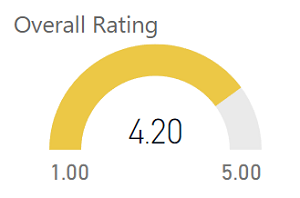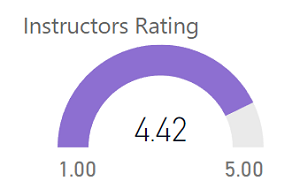[Set Slide Image]
PD Pathways
PD Pathways is a monthly digital newsletter for CPAs and business professionals, showcasing the latest news and resources in CPABC Professional Development.

February 2022 Content

6 Ways to Improve Your Communication at Work
By Team Six Words, originally published in sixwordscommunication.com.
No matter where you work, poor communication is a common workplace problem. Whether it’s lack of information, closeness-communication bias, or jargon-full-who-can-understand-this-stuff updates, bad communication stalks even the most transparent, open organizations.
The good news is, you can take steps to ensure you don’t contribute to poor communication. These six tips will help you improve the way you communicate at work (and in many other aspects of your life).
Consider Context and Key Messages
Your coworkers, boss or external contacts may not have the same context or insights as you do on the latest project or situation. Before you communicate, take a moment to ask yourself the following questions. Then, build them into your written or verbal communications:
- Do I need to recap anything to ensure we’re all on the same page? When in doubt, include a recap. Those who already know can skip over it, those who don’t will appreciate the refresh.
- What are the critical updates or messages I need to get across? How can I make these stand out?
- Where do we go from here? What are the next steps I need to include?
- What do I need people to do with this information? Is it “FYI” only? Or do they need to take action?
Make the Most of Formatting
The longer the update, the more likely important details will be lost.
Use formatting in written communication (such as bullet points or bolding certain words) to highlight vital information. We like to bold important dates, calls to action or key decisions, so it’s nearly impossible to miss them.
When communicating verbally, try to be clear, concise and focused. Hone in on the most important details and leave the distracting filler content out.
Watch Your Tone and Body Language
The way you communicate can drastically affect your message. Always consider your tone and body language – a serious conversation requires a different approach than a celebratory update. Paying attention to these factors can improve your interactions with others, and make you a more graceful communicator overall.
Listen
We’re big believers in doing more listening than talking. Listening not only helps build stronger relationships, but it also creates room for conversation and gathering feedback and information that may be critical to your success. In any form of communication, always make space for listening.
Think Before Your Communicate
Whether it’s an email, a personal interaction, or a phone call, what you say matters. Don’t underestimate the power of the pause. Your first response may not be your best. Before replying in haste to your latest email or request, ask yourself – does my response add value? Are you communicating out of emotion, or out of necessity?
Be Specific
If there are gaps in what you are saying, people will fill them with their own assumptions. Make sure you review and look for ambiguity or gaps in your communication.
Being a good communicator takes effort. Try the tips above and let us know how it goes!
.png) Corinne Impey is a versatile, action-oriented senior communications professional and entrepreneur. She provides strategic advice and communications coaching to leaders and teams across Canada. Together with her team at Six Words Communication, she develops communication and change management plans, campaigns and materials that build brands, engage stakeholders and drive results. Corinne holds a Masters of Professional Communication degree from Ryerson University and is the recipient of a Gold Quill Excellence Award from the International Association of Business Communicators for her work in change communication.
Corinne Impey is a versatile, action-oriented senior communications professional and entrepreneur. She provides strategic advice and communications coaching to leaders and teams across Canada. Together with her team at Six Words Communication, she develops communication and change management plans, campaigns and materials that build brands, engage stakeholders and drive results. Corinne holds a Masters of Professional Communication degree from Ryerson University and is the recipient of a Gold Quill Excellence Award from the International Association of Business Communicators for her work in change communication.
Learn more with Corinne at her upcoming session on Level Up: Writing for Clarity and Impact

Save the date! Virtual PD Nexus Days
PD Nexus Days are information-packed days designed to bring new knowledge on current and relevant topics to members in multiple, bite-size sessions throughout the day. Save the date now – details and registration will be available in March.
PD Nexus: Business & Leadership Insights
July 7th, 2022
Our semi-annual Business Insights Day will provide three streams of content on current business, leadership and work-life integration topics that will introduce new ideas, expand your knowledge and sharpen your skills as a business leader. Come explore new ways to be your best self, both at work and beyond.
PD Nexus: Information Technology Insights
July 18th & 19th, 2022
Keep up with the latest technologies in this two-day event and explore practical technology topics designed to help alleviate the heavy workloads of today’s busy professionals.
Improve your Communication Skills
Effective communication skills, whether verbal or in written form, are critical to getting your message across and arriving at your desired results.
Level Up: Writing for Clarity and Impact
Explore ways to improve your written communication and unpack some of the common communication pitfalls that may be getting in the way.
More about Writing for Clarity and Impact
Business Writing Fundamentals
With this on-demand delivered in partnership with Corporate Finance Institute (CFI), learn how to prepare, structure, and style your writing to improve the chances of getting your recommendations approved.
More about Business Writing Fundamentals
Communicating Effectively Under Pressure
Explore circumstances where pressure occurs, understand your stress response, and discover common pitfalls. Learn practical strategies for communicating under pressure.
More about Communicating Effectively Under Pressure
The Three C’s of Effective Communication
With this on-demand, explore strategies for becoming a more effective, influential communicator both internally and externally in the workplace.
More about Three C's of Effective Communication
Management Accounting
As a financial professional, improving your practical knowledge of costing and profitability, and familiarizing yourself with financial statement ratios can contribute directly to your organization’s bottom line.
Costing and Profitability
In this interactive seminar, learn how to identify the main drivers of profitability and the parts of the business that need to be changed.
More about Costing and Profitability.
Taking Financial Statement and Ratio Analysis to the Next Level
This seminar focuses on how to analyze financial statements, focusing particularly on financial statement ratios and some of the reports that popular systems, such as Bloomberg reports, generate for external users of financial statements. Read more
More about Financial Statement and Ratio Analysis


Four Ways to Take your Excel Skills to the Next Level
Excel is one of the most widely used software - but are you using it to its fullest potential? Here are four ways to guide you on your path to mastering Excel:
Review the Basics
Users who are self-taught in Excel may feel that they have gaps in their Excel knowledge. Once you have covered the basic features and functionalities available, and reviewed Excel techniques you should know, you can then take that next step to learning more advanced tools such as Power Query and PivotTables.
Understand your Audience
Is your audience trying to answer specific questions with the data? Does your audience prefer detailed numerical or visual information? Knowing who your audience is - identifying what is important to them and what they need from the data - will help you build robust dashboards and better financial models for analyzing your key metrics in Excel. By understanding your audience, you can capture, interpret, and utilize your data in a meaningful way.
Learn Best Practices
As spreadsheets continue to evolve, so too must your practices for creating, editing, and auditing them. Gain an in-depth understanding of the best ways to work with Excel by learning best practices. Whether it is mastering keyboard shortcuts or formulas and functions, becoming proficient with Excel best practices will enable you to work more efficiently and allow you to learn more complicated strategies.
Define your Goals
What do you hope to achieve with Excel? You have a certain level of knowledge now, but where do you want to go from here? What areas of work are you hoping to become more efficient in and how can Excel help you accomplish that? Take a few moments to answer these questions so that you can define your learning goals more clearly. Then assess your current level, understand your audience, and brush up on all that Excel has to offer. You’ll be at that next level in no time!
Additional Resource: Watch our PD instructor Ken Puls explain PowerPivot and Power Query. .


From Conflict to Collaboration…
“Between stimulus and response, there is space. In that space is our power to choose our response. In our response lies our growth and our freedom.” Victor Frankl
This is one of Pam Penner’s favourite quotes.
.png) Meet Pam, one of your Professional Development instructors with over 20 years of extensive experience working in the field of conflict resolution as a mediator, facilitator, coach and trainer. In private practice since 1998, and as a member of the instructional team at the Justice Institute of B.C., she specializes in helping individuals develop their communication and conflict resolution skills. We asked Pam to tell us more about her two upcoming seminars and why they are relevant to our members.
Meet Pam, one of your Professional Development instructors with over 20 years of extensive experience working in the field of conflict resolution as a mediator, facilitator, coach and trainer. In private practice since 1998, and as a member of the instructional team at the Justice Institute of B.C., she specializes in helping individuals develop their communication and conflict resolution skills. We asked Pam to tell us more about her two upcoming seminars and why they are relevant to our members.
Why is it important to learn about how to prepare for and conduct difficult conversations effectively, or communicate under pressure well, now more than ever?
In the years that I have been teaching these seminars I have heard how much pressure CPAs experience in the workplace – increasing workloads, expectations by management to provide data on the spot, the need to address problematic behaviours and manage the emotions of others. These skills learned in these seminars will help CPAs manage the pressure of these high demands and expectations placed on them.
The premise of both of these seminars is that unless we learn to communicate under pressure and how to conduct difficult conversations, a problem will only get worse, not better. It is critical to our sense of well-being and credibility to learn methods to manage these dynamics which will reduce stress in the long term.
In the seminar Communicating Under Pressure, we explore what happens to our ability to think as the stress of pressure increases, and how to manage that pressure and to allow us to think on our feet. We also explore how to say no in a way that is constructive and that still meets both our needs and those of the other person.
Most of us fear confrontation and the potential impact it can have on relationships, and so we avoid it. Unfortunately, avoiding the problem only increases it. Problems rarely go away on their own. In the seminar How to Conduct Difficult Conversations, we explore communication strategies to address problematic behaviours in a clear, constructive manner that reduces the stress we experience and helps to change the behaviour of others.
What’s one of the key ways these seminars will help CPAs in their career?
Strong communication skills are essential to career advancement. Both of these seminars focus on communication skills that are essential to career advancement, effective supervision of staff and for meeting organizational needs of productivity, effectiveness, and employee morale.
Is there a current challenge that your seminars will help address?
Both seminars address the challenge of a lack of assertiveness.
Plato said, “we get the behaviour we tolerate” and, in fact, we condone it if we don’t speak up about it. In the seminar on conducting difficult conversations, we explore communication tools for addressing problematic behaviours.
In the seminar on communicating under pressure, we explore our current communication style and how to shift to a more assertive style, including how to say no in a way that is respectful to both ourselves and the other person.
What is a key opportunity your seminars offer?
When we communicate in an aggressive or passive way we cause damage, both to ourselves and others. These seminars offer an opportunity to learn how to develop your assertive communication skills without damaging relationships.
Tell us about one takeaway that you are really excited to share with your audience.
When we avoid saying no or having a difficult conversation, nothing is resolved and resentment builds. This is an opportunity to learn some skills that will support having difficult conversations that will ultimately improve relationships and reduce pressure.
You will learn to say no in a way that acknowledges your own needs and also works to meet the needs of others.

Ethics Resources
Every CPA BC member, unless otherwise exempt, must complete four professional ethics hours during each rolling three-calendar-year reporting period. As part of our commitment to your lifelong learning, PD strives to curate and offer you Ethics titles that are relevant and engaging. Get a head start in 2022 and check out these four-hour, verifiable Ethics titles available in our Winter Program:
A Threats and Safeguards Approach to Ethical Decision Making
In this session, you’ll determine how ethical challenges can be mitigated, through examining the relevant Rules and applicable Guidance in the CPA Code, and determining relevant safeguards.
More about Threats and Safeguards.
Business Ethics: It Starts With You
Through a brief historical review of various ethical theories, the goal of this session is to build a foundation for you to investigate the ethical dimensions of controversial business issues, foster an ethical mindset and develop communication strategies in support of ethical actions.
More about Business Ethics
Ethics and Technology
Explore many of the current and emerging issues associated with ethics and technology, such as copyrights, cybercrimes, privacy versus security, and geo-tracking technologies. In this session, you will learn about “technoethics” and the implications this has on individuals and organizations.
More about Ethics and Technology.
Shades of Grey: Ethics in the Workplace
Develop and enhance your understanding and application of business and professional ethics. Through case studies and ethical dilemmas, you will learn about professional conduct, sources of ethical guidance and how ethics impacts the culture and environment of an organization.
More about Ethics in the Workplace.

PD Pathways
Reminder
To prepare for the tax season that is almost upon us, get your refresher and the latest updates on U.S. Taxation, as well as Corporate and Personal Tax topics.
Did You Know?
CPABC provides in-house presentations tailored to fit your team’s professional development needs.
With these presentations, specialized training can be delivered to your team in a way that meets your specific requirements. Whether you are seeking seminars to increase staff productivity, improve engagement or enrich professional expertise, our in-house services can help you achieve your goals. Learn more
Course Ratings for Fall 2021
Based on feedback from 3,747 seminar participants who completed their course evaluations in the fall of 2021, our average course rating is 4.2/5, and our average instructor rating is 4.4/5.
Your feedback is invaluable to us in our continuing efforts to deliver quality seminars!




